NI Executive budget pressures: Redundancy scheme for civil servants considered
- Published
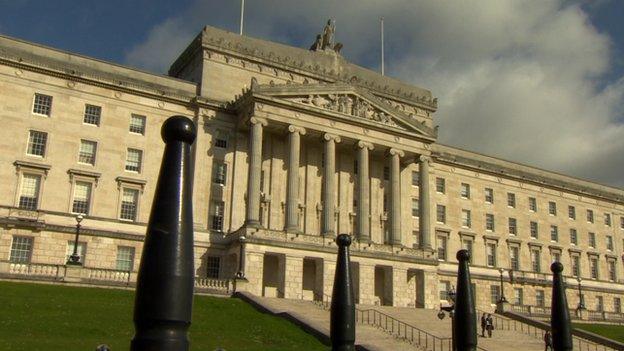
The executive agreed a loan of up to £100m from the Treasury on Thursday
A voluntary redundancy scheme for public servants could be opened up to help Stormont balance its budget.
Peter Robinson thinks such a voluntary scheme would save £160m a year.
The first minister told a DUP event on Thursday that he expected "you would be knocked over in the rush" if such a scheme opened.
Sinn Féin has not disagreed that such a scheme is on the cards. The executive agreed a loan of up to £100m from the Treasury on Thursday.
'Immense challenges'
Finance Minister Simon Hamilton said the executive still faced an "incredibly difficult budget situation" that was exacerbated by the executive's failure to reach a deal on welfare reform.
.jpg)
Simon Hamilton said the head of the civil service would look at issues around the number of staff employed
"The entire executive recognises that we're facing immense challenges moving forward," he said.
"At our meeting on Wednesday, there was agreement across all of the parties that the head of the civil service would go away and produce a report and a plan for the executive to consider that would look at the restructuring of our whole public sector.
"That will look at issues around the number of civil servants and public servants that we have, issues around pay as well and we will consider that in the light of what the head of the civil service brings back to us."

Analysis: BBC News NI Economics & Business Editor John Campbell
On the most recent figures, for June 2014, there are 212,000 employees in the Northern Ireland public sector.
About 74,000 of those work in the health service and another 65,000 work in education.
The numbers have been coming down over the past five years - in June 2009 the total was 226,000.
In the Police Service of Northern Ireland (PSNI) for example, numbers have decreased from 11,000 to fewer than 10,000.
But there have been steeper falls in other parts of the UK.
A paper circulating at Stormont examines the change in public sector employment between 2010 and 2013.
It shows a fall of less than 4% in Northern Ireland, compared to a drop of almost 8% in Scotland and more than 10% in England.

Education Minister John O'Dowd said his party would await the outcome of those discussions.
"We will wait on the report from the head of the civil service after the discussions with the union, but the key word is voluntary," he said.
"At this stage no-one is envisaging that there will be forced redundancies upon anyone.
"There has not been a voluntary redundancy scheme within the civil service for many, many years and there is a suggestion that if a voluntary redundancy scheme came forward that it would be quite popular and that it would attract the numbers that would be required to reduce costs across the public service.
"We will take a look at the terms and conditions of (any) voluntary redundancy scheme and if we're satisfied with it, we will support a voluntary redundancy scheme after all those measures have taken place."
The number of public sector jobs in Northern Ireland has been falling slowly but now it looks like the pace will pick up.
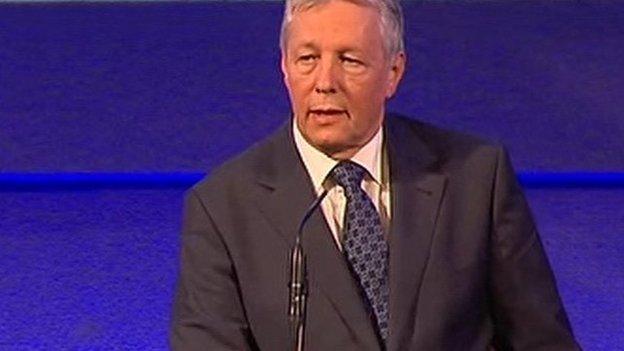
First Minister Peter Robinson said the loan was conditional on Stormont agreeing a draft budget for 2015/16 by the end of October
The deal to secure the loan of up to £100m from the Treasury was brokered by the Democratic Unionist Party with the Chancellor, George Obsborne.
'Expensive sticking plaster'
It means extra cash for departments, including £60m for the Department of Health and almost £30m for the Department of Justice.
However, the arrangement has been criticised by other parties as an "expensive sticking plaster".
The Treasury had been asked to supply Stormont with a one-off loan of between £100m and £150m to ease its budgetary crisis.
It is understood that Peter Robinson and Finance Minister Simon Hamilton made the proposal to the chancellor.
Mr Robinson said the loan was conditional on Stormont agreeing a draft budget for 2015/16 by the end of October.
Justice Minister David Ford said the move to borrow £100m was "not good management"
The loan will ensure Stormont does not breach its spending limits by more than £200m at the end of the financial year.
However, it will increase the amount Stormont will owe the Treasury next year.
Northern Ireland's failure to implement welfare reform means the executive will incur £87m in penalties this year and another £114m next year - those penalties might be waived if the parties reach a deal in the near future.
It is also understood that welfare reform is not part of the deal with the Treasury, but instead will feature in the planned political talks due to begin next week.
- Published10 October 2014
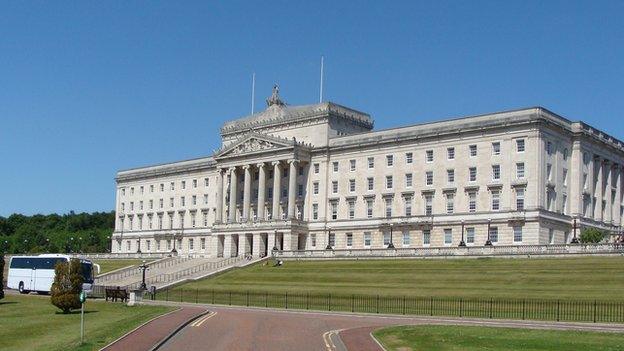
- Published9 October 2014

- Published8 October 2014

- Published29 September 2014
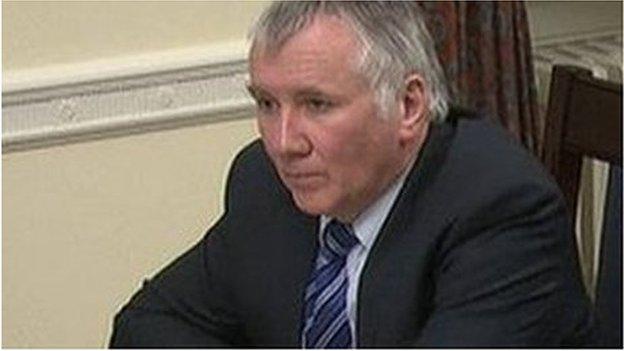
- Published29 August 2014
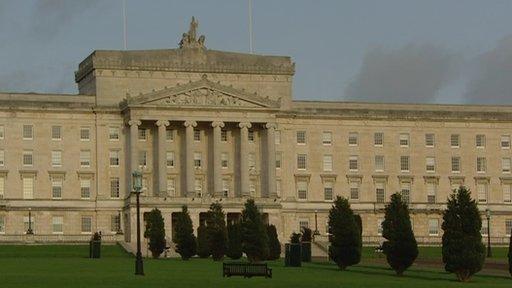
- Published9 September 2014

- Published7 October 2014
